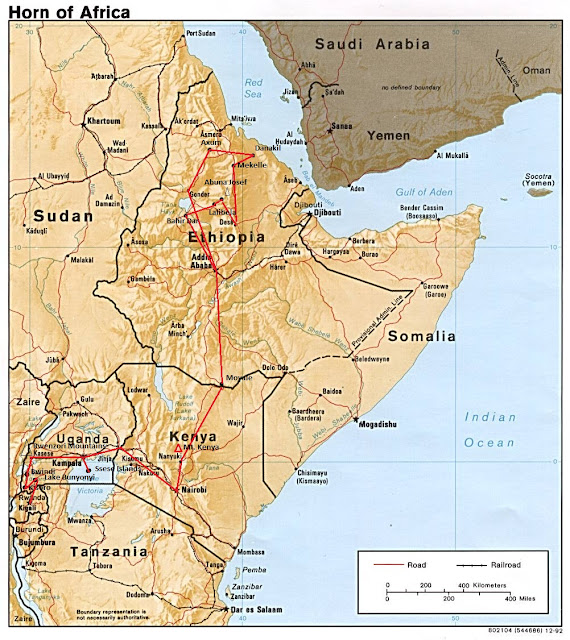So after four solid days and zero solid stools aboard Mozambiques finest roadworthy buses I have finally arrived home. South Africa's dual carriageways opened up in front of my eyes like the Red Sea. Goat numbers dwindled and road rage quadrupled as Joburg's rutted skyline came into view. Ponte's neon lights have never looked sweeter. And South Africa has never seemed more developed.
Reflecting back on the last nine months I suppose the only universal truth about Africa is that there are no universal truths. Every country had some amazing people and every country had some royal turds. But in general the people were great. Some countries are on the brink of economic explosion, like Mozambique while others are on the edge of ruin, like Mauritania. But in general it seemed the economies were on the up. Some countries have remained politically stable, like Senegal, others have crumbled into anarchy, like Mali and in others, no one actually has a clue whats happening. Like Ethiopia. But in general there seems to be trend towards stability. So for all the negative press out there of wars, famine and disease it seems to me that the future is not all skinny children with flies on their faces.
Here are some of the stats:
Final Mileage: 26,607kms
Money raised to date for the Key School: R43,500
Countries visited: 14 (Morocco, Mauritania, Senegal, Mali, Burkina Faso, Ghana, Ethiopia, Kenya, Uganda, Rwanda, Burundi, Tanzania, Mozambique, South Africa)
Modes of transport used: 16 (train, bus, minibus, truck, scooter, car, donkey, horse, cattle, camel, pirogue, ferry, dhow, speedboat, steamboat, feet)
No. times sunburned: >30
No. long drops used: >200; Successfully: 4
Longest beard hair: 13cm
Couchsurfing success rate: 4%
Illnesses: 8 (food poisoning X 1, dysentery X1, tummy bug X5, flu X2, ringworm X9 months)
Items stolen: 0
Bribes paid: 0
And some quick awards...
Favourite country: Ethiopia
Least favourite country: Ethiopia
Most Forgettable Country: Burkina Faso
Most Hirsute Country: Mauritania
Best Food: Morocco
Worst Food: Ghana
Most People Fitted into Standard Minibus: 41 (Southern Tanzania)
Country Most Likely to Get Drafted into Religious Cult: Ghana
Country with Most Overzealous Imams: Senegal
Best Beer: Primus (Rwanda)
Worst Beer: Everything in Tanzania
Best Moment: Summiting Mountains of the Moon in the midst of a blizzard
Worst Moment: Summiting Mount Kenya in the midst of David Cloetes foreskin
Country Most Want to Return To: Mali
Country Least Likely to Return To in This Lifetime: Mali
And finally just a quick word on the funds we raised for the Key School for Autism. The Key School has had a tough year. Many of their sponsors didn't pull through for them and they have been fighting to stay afloat for most of 2012. Their future is uncertain at this stage, however, the money that many people so kindly donated has gone a long way in ensuring that their doors have stayed open in 2012. So a massive thank you to everyone who gave of themselves for this very worthy institution! All we can do now is hold thumbs for them.
So thats it from me - Ive had a lot of fun writing this blog so another thank you for taking the time to read it. Its nice to know its not just my mother who has been checking in on me. Its quite sad its all come to an end. But its very nice to be sleeping in a bed again. And having hot showers.











































